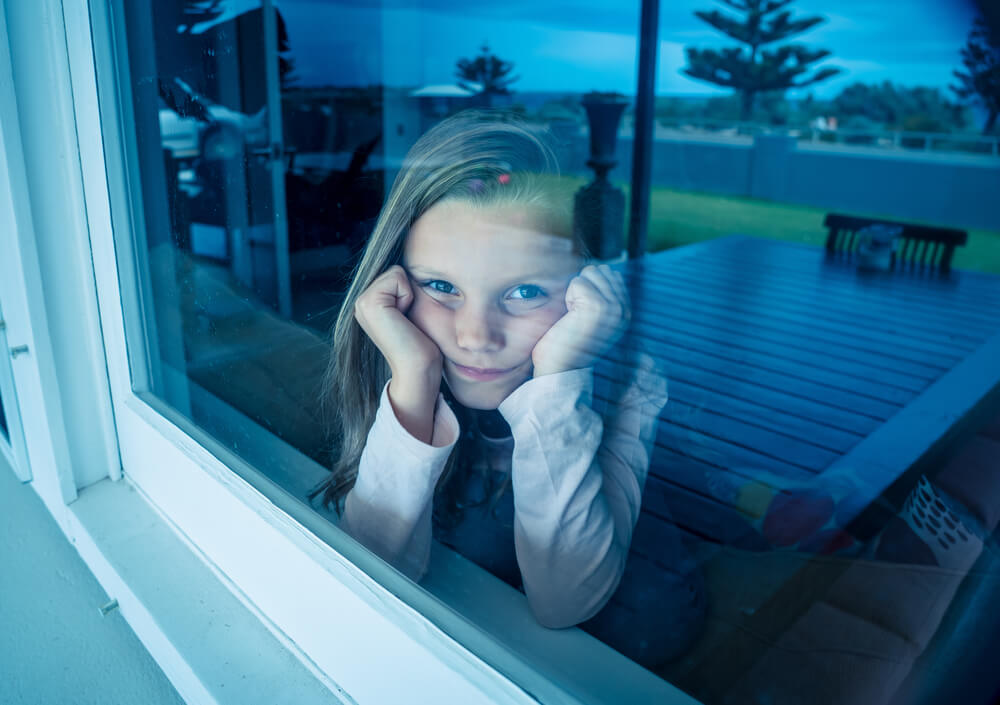



Get new exclusive access to healthcare business reports & breaking news




Concerns are mounting over the results of a study involving Chicago’s children. The study conducted by the Pritzker Department of Psychiatry and Behavioral Health at Lurie Children’s Hospital found that 20% of kids today are dealing with serious mental health issues. And the pandemic has only worsened the issue.
Kids are dealing with a lot these days. Not only have they had to adjust to the loss of contact with their peers for months on end, the financial strain that has been facing many homes has also taken quite a toll. Add to that the death of close friends and relatives and what we have is a disaster of sorts.
The state of Illinois has long been aware of the importance of mental health, especially in children. That’s why there is now a requirement for middle and high schools in the state to provide classes on mental health. Teaching young people about mental health is just as important as teaching physical health, if not more.
Now, as schools re-open and students return to physical learning all over the state, schools need to make mental health learning a priority. As students venture back into their old learning environments, the classroom will look and feel vastly different.
Even though we’ve had quite some time to adjust to our new realities, the complexities of remote learning, social distancing, and all the restrictions that come with it are bound to cause emotional stress on grown adults, let alone young children. Losing milestones and rites of passage such as birthday and graduation celebrations have been other things that have been felt deeply.
So much so that the CDC reported that between March and October, the number of mental health emergency department visits increased by 24% in children aged 5 to 11 and 31% among adolescents aged between 12 and 17 years. The wealth of hard research on how the pandemic is impacting children’s mental wellbeing is still lacking, mostly because the pandemic has been fast-moving and because studies need time to be conducted properly. The little data that is available though, is alarming.
When people think of safety at school, many often think along the lines of reduced violence or disaster preparedness. However, the mitigation measures associated with the pandemic underscore just how vital mental health awareness has become. Now more than ever before, both the parents and educators must join forces to protect the learners.
School going children and adolescents are facing the most challenges as per reports generated by the CDC. This highlights the importance of continued monitoring of children’s mental health issues as we continue to fight the pandemic, as well as post-pandemic when things seemingly settle down.
Access to care during this crisis must also be improved. Even though mental health issues manifest themselves differently in children, the point is to give the young ones coping strategies so that they can be more resilient in the face of any challenges.
So what can parents and teachers do to help children suffering from mental health issues?
Helping children with complex emotional and mental challenges starts with observing that there is a problem in the first place. It can be hard to pay attention to the happenings and goings of a child’s emotional life but you must pay close attention so that if there is a problem, something can be done to rectify it.
The signs of mental health challenges and stress will vary from one child to the next but there are some common symptoms that parents can look out for. For instance, increased fussiness and irritability, feelings of hopelessness and rage, or recurring fights and conflicts may signal a mental health problem.
While recognizing that a child may be experiencing particular mental difficulties, it is critical to pay attention to the context. Keep in mind that children always have a home context and culture, as well as a wider social-cultural, and economic environment that affects their wellbeing.
Their developmental history, as well as their special way of experiencing or interpreting the world, will also impact their mental health. As such, it is essential to keep all these things in mind before attempting to make any interventions.
It also helps to create a supportive environment so that when kids are under mounting stress, they can feel free enough to talk about the problems affecting them. For more guidance, a family care practitioner or pediatrician can also offer additional support to help with resilience.
Some teens or kids may need more time and space to express themselves. Activities that do not involve talking, such as painting or physical activities, can also help with self-expression and stress management.
As caregivers, it is the parents that set the tone in the household. As such, if all you are doing is spelling doom and gloom, it will no doubt affect the children. It can be hard to stay positive through this tough period, but it is more important than you can imagine. It helps to relay consistent messages that better days are coming, and the vaccines that are currently being disseminated are proof of that.
Years from now, the pandemic will be a distant memory, albeit a painful one. The younger generation that is living through this extremely hard time in history will be impacted by this event forever. The primary objective for caregivers and professionals is to ease the pain that these kids are feeling as much as possible so that they can re-adjust easily.
The wellbeing of Illinois’ children extends far beyond learning and sustenance- their mental health is just as important. The mental health of children during a public health emergency such as this pandemic will have short and long-term consequences to the kids’ overall health and wellbeing. As such, the issue must be dealt with the seriousness it deserves.